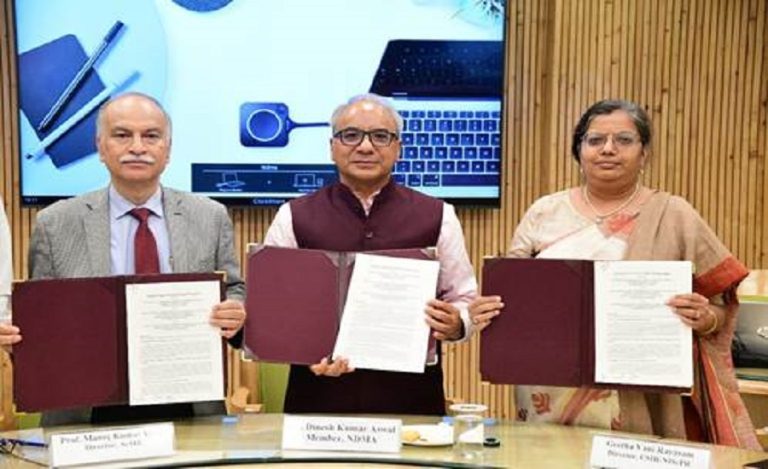New Delhi: The Rail Land Development Authority (RLDA) has come under sharp criticism from the Public Accounts Committee (PAC) for its prolonged failure to develop railway land entrusted to it since 2007. In a damning assessment, the committee noted that out of 17 land parcels reviewed, work had commenced on only three—despite more than a decade having passed since their handover.
The findings appear in the PAC’s 27th report tabled in Parliament this week. Chaired by senior Congress leader and Rajya Sabha MP KC Venugopal, the committee has raised serious questions about RLDA’s execution capacity and internal governance.
Planning Paralysis and Institutional Weakness
The report highlights systemic planning failures at RLDA. Despite being required to prepare a five-year commercial development plan, the PSU has failed to do so for over a decade. This lack of basic planning, the PAC observed, has obstructed meaningful utilisation of railway land.
Further, RLDA did not appoint a panel of government consultants for nearly eight years after its formation. In many instances, consultants were brought on board only after eight to ten years of land being handed over. The PAC stated that such delays reflect a lack of institutional readiness and operational foresight.
Revenue Returns Fall Far Short of Targets
RLDA’s financial performance also came under scrutiny. Between 2006–07 and 2016–17, the agency spent ₹102.29 crore on establishment and consultancy but earned only ₹67.97 crore—mostly from small multifunctional complexes, not major commercial projects.
In FY 2017–18, RLDA was given a revenue target of ₹1,195 crore but generated only ₹42.93 crore. The wide gap between revenue targets and actual earnings prompted the committee to call for a critical evaluation of RLDA’s leadership and financial strategies.
Also Read: Indian Railways Transfers & Appoints 32 New Divisional Railway Managers Across Zones
State-Level Bottlenecks and Legal Inconsistencies
Regulatory hurdles have compounded delays. Despite a 2018 Union Cabinet ruling that commercial use of railway land does not require change of land use, only five states issued necessary compliance instructions to local authorities. The PAC warned that such inaction has obstructed project execution across several regions.
Additionally, RLDA’s refusal to allow subleasing of undivided land shares was flagged as a major obstacle to financing. This restriction contradicts the Real Estate (Regulation and Development) Act (RERA), making it difficult for developers to raise funds and buyers to secure loans. Amendments to resolve the issue are reportedly under consideration.
Neglect of Displaced Vendors Raises Social Concerns
The PAC also criticised the absence of a policy for rehabilitating informal vendors displaced by RLDA’s commercial projects. It observed that this gap raises concerns about the social impact of railway land redevelopment and urged the Ministry of Railways to establish clear guidelines.
Urgent Need for Reform and Accountability
In its final remarks, the PAC called for a full institutional review of RLDA’s functioning. It recommended fixing responsibility on senior officials for lapses, while urging reforms in land policy, financial procedures, and regulatory coordination. The committee stressed the need for urgent systemic correction to ensure RLDA fulfils its core mandate.




























